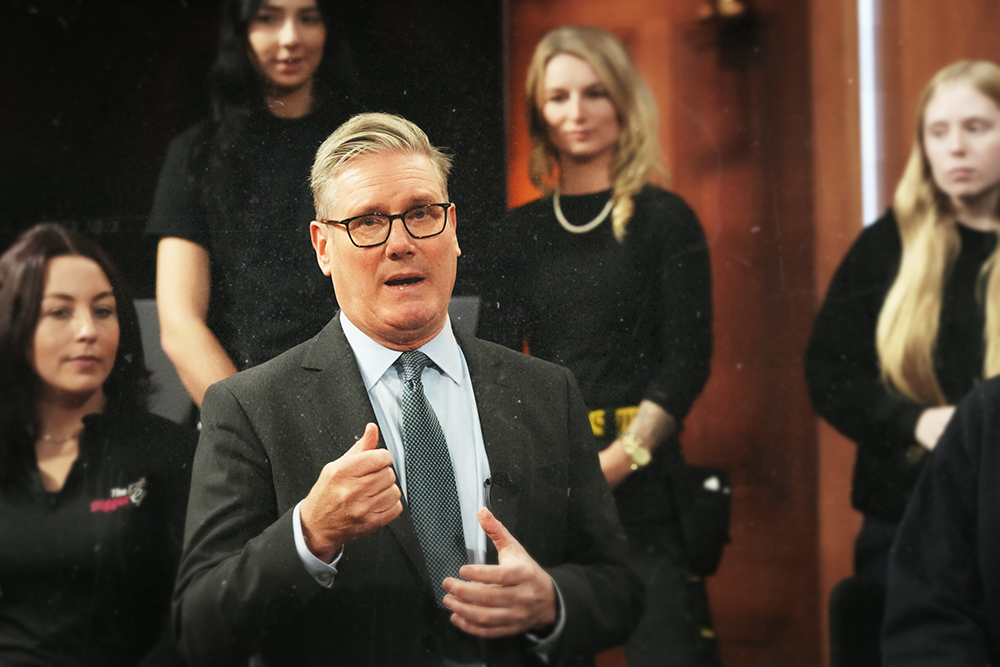I have spent the past couple of weeks in Oxford rediscovering the art of conversation while campaigning for election as the university’s chancellor. I have sung for my supper in Christ Church Cathedral before being questioned in the SCR on my fitness for the role, and I performed again at evensong at Univ before debating postcolonial reparations over vegetable broth and venison. I have been gifted cyclamens following visits to St Hilda’s and Corpus. At St Hugh’s my understanding of the Higher Education (Freedom of Speech) Act was taken apart by the law don, while at Worcester I was challenged on the state of Britain’s naval hard power and the FCDO’s soft power. I debated ethics and AI at Balliol and health data anonymity at Reuben, while at LMH I was reminded of my overnight occupation of the Examination Schools in my first term at St Catherine’s in 1973.
The race for the chancellorship is a strange, atomised, largely virtual experience in which it is almost impossible to identify, let alone communicate with, anyone who has a vote. Student encounters, high-table dinners and visits to science labs have been rewarding, and thankfully the race has been remarkably free of mudslinging by the candidates. An early portrayal of me as a partisan figure compared with William Hague by the retiring chancellor, Lord Patten, did not go down well in the university. Charles Moore went further in last week’s Spectator, likening me to Xi Jinping in my desire to ‘project Chinese power’ – a curious claim given my public view that the West needs to combine deterrence with dialogue towards China. But, all told, whatever the outcome, my memories of the campaign will be very positive.
In reality, William Hague and I offer a rather similar view of the chancellor’s role – not just figurehead but global ambassador and fundraiser for the university. Given that the higher education funding system in Britain is teetering and that the financial pressures on government are extreme, I cannot see any alternative to Oxford looking outwards if it is to remain world class. Oxford will always survive because it is too strong to fail. The question is, is it strong enough to remain competitive globally? Oxford depends, both for its teaching and its research, on cross-subsidy from within the university. Current spending is being bailed out from savings accounts which are not growing fast enough. Endowments are nowhere near the size of those in America. So Oxford is going to have to put on its running shoes. This is what the next chancellor will need to focus on, along with the gown-wearing, degree-conferring and after-dinner speeches.
If I am not lucky in my bid, Michael Gove offers a rather attractive alternative role model as editor and broadcaster. He recently delivered a polished performance as presenter of a BBC series called Surviving Politics in which he interviewed me, among others, about survival (and comebacks) in the Labour party and I tried to turn the tables and interview him about surviving Brexit. I had not thought about it before our discussion, but he and I are rather similar. Neither of us came into politics for the ride or to be fence-sitters; both of us have strong core beliefs and do not shy away from controversy. The problem is that, in both our parties, there is an innate conservatism. Tony Blair was a compulsive revisionist, as I was (he once quipped to me that only two people are genuinely New Labour, him and me). Michael was the most effective minister in the last government, transforming significant chunks of the public realm, often against the wishes of his colleagues. I wonder who in this current crop of Labour ministers will challenge orthodoxies and risk their popularity to get things done through meaningful reform as well as increased spending.
Speaking of which, Rachel Reeves is high up in the Govian stakes with a Budget which has had to fix Jeremy Hunt’s black hole, protect public services from further erosion, support wealth creators and unleash investment. Time will tell whether she has made a reasonable start. Knowing her a little as I do, and as a student of Labour history, she will be relaxed about the criticism her tough measures have inflamed. If she was seeking popularity at this stage in the electoral cycle, it would probably be coming from the wrong places. She would do well to remember the remarks of Dora Gaitskell, the wife of Hugh Gaitskell, himself a post-war Labour chancellor of the Exchequer. She told him that ‘the wrong people are clapping’ after a conference speech in which he delighted his audience but did not set the right course for the party.







Comments